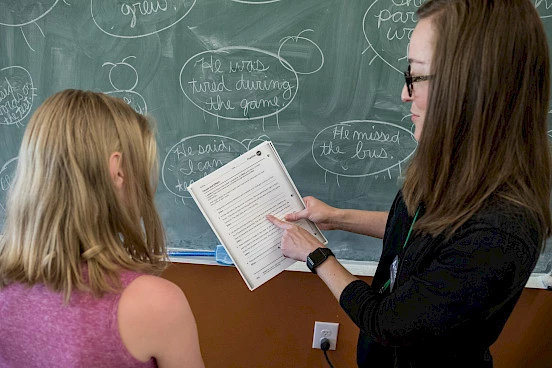Specialized Services
Our speech therapy team uses a variety of tools and techniques to tailor a child's treatment plan to fit their needs.
- Beckman approach for oral-motor therapy
- Childhood apraxia of speech (CAS)
- Alternative and Augmentative Communication (AAC)
- Aided language stimulation
- Feeding, food chaining
- Sensory/motor feeding techniques
- Auditory processing
- Oral motor impairments
- Social skills (pragmatic disorders)
- Therapeutic use of iPad apps and other technology
- Visual supports
- Social stories
- Written expression
- Reading, spelling and comprehension

